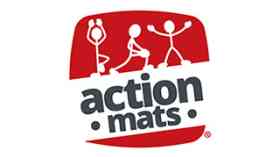Action Mats create resources for primary and early years children focussing on movement skills and active learning.
Supplier Focus
Latest Supplier News
Borg & Overström is a UK manufacturer of premium drinking water solutions. For over 20 years Borg & Overström has developed sustainable, bottle-less, hygienic, drinking water dispensers with the aim to provide exceptional, safe, self-service drinking water into schools, universities, workplaces and communal spaces.

 The Green Paper published in March 2011 set out the vision for a new system to support the 1.7 million children and young people currently identified with special educational needs and disabilities. In their response to the consultation document published in May 2012, the government set out the next steps towards the changing of legislation by 2014.
The Green Paper published in March 2011 set out the vision for a new system to support the 1.7 million children and young people currently identified with special educational needs and disabilities. In their response to the consultation document published in May 2012, the government set out the next steps towards the changing of legislation by 2014.








